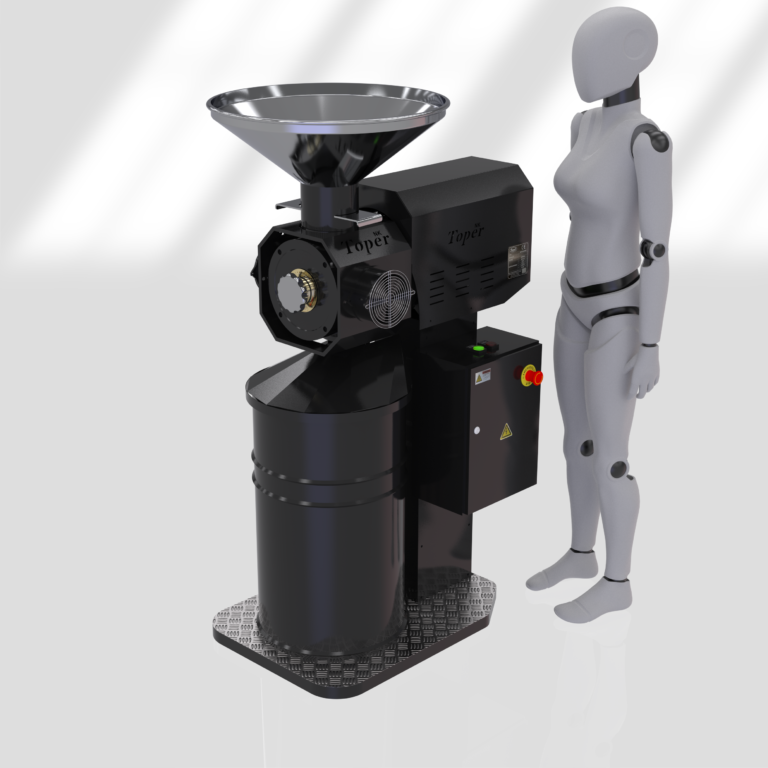Industrial Coffee Grinder Selection Guide for Expert Coffee Makers
Wiki Article
Industrial Coffee Mill Guide: Boost Effectiveness and Quality
In the affordable landscape of coffee production, selecting the ideal industrial coffee mill plays a critical role in boosting both efficiency and item high quality. Understanding the subtleties of various mill kinds and crucial attributes-- such as adjustable grind setups and durable construction-- can considerably affect the last flavor profile of the coffee. Furthermore, the optimization of the grinding process, combined with diligent maintenance, is essential for sustaining efficiency with time. As we explore these important components, it becomes obvious that the effects extend beyond mere equipment option, influencing total business success in methods that call for closer exam.Recognizing Mill Kinds
When choosing an industrial coffee mill, comprehending the various kinds offered is important for optimizing both taste extraction and functional effectiveness. The two key kinds of mills are blade grinders and burr mills.
Eventually, selecting the ideal kind of grinder is integral to maintaining top quality and effectiveness in coffee production, making it crucial for businesses to invest in top quality burr grinders for optimal outcomes.
Key Functions to Consider
Picking an industrial coffee mill requires cautious consideration of numerous vital features that can substantially affect both performance and the general coffee experience. Among the key aspects to review is the grinding mechanism. Burr grinders are normally favored over blade grinders, as they provide a constant grind dimension, which is vital for optimal extraction and flavor.Another essential function is the mill's capability. A versatile mill with several settings enables you to customize the work dimension to various developing techniques, improving the coffee's taste account.
Review the grinder's noise degree, especially in an active café or production environment, where too much sound can be turbulent. Spending in a grinder that stabilizes these attributes can substantially enhance both functional effectiveness and the top quality of the coffee served.
Optimizing Grinding Refine
To achieve the ideal results in coffee prep work, maximizing the grinding process is crucial. The grind size substantially influences removal, taste, and total top quality of the brewed coffee.


Furthermore, checking the grinding rate can maximize the procedure. Slower grinding often produces less warmth, preserving official site delicate tastes and aromas. Conversely, faster grinding may generate excessive heat, negatively impacting the coffee's quality.
Upkeep and Treatment Tips
Correct upkeep and treatment of industrial coffee grinders are vital for making sure ideal performance and longevity. Routine cleaning is the foundation of maintenance; deposit build-up can impact flavor and grinding efficiency. It is recommended to clean the mill after each usage, wiping down the exterior and getting rid of any kind of coffee grounds from the burrs.Additionally, inspect the grinding burrs for damage. Plain burrs can jeopardize grind consistency, so they need to be changed as needed. Industrial Coffee Grinder. Regularly calibrating the mill is likewise essential, as this maintains the wanted grind size for different brewing approaches
Lubrication of relocating parts need to be done according to the producer's requirements, as this minimizes friction and lengthens the life of the devices. It is important to make use of food-grade lubes to guarantee safety and security and compliance with wellness guidelines.
Lastly, maintain the grinder in a secure and dry environment to stop rust and corrosion. By sticking to these maintenance and treatment ideas, operators can improve the effectiveness of their industrial coffee mills while making certain top notch result and prolonged operational life.
Roi Analysis
Examining the return on financial investment (ROI) for industrial coffee grinders is critical for businesses seeking to enhance their coffee manufacturing capacities. An extensive ROI her comment is here evaluation aids determine the monetary stability of purchasing premium mills, enabling services to consider the first costs against potential gains.To carry out a detailed ROI evaluation, companies ought to consider numerous vital factors. Analyze the acquisition rate of the mill, consisting of setup and any type of required adjustments to existing infrastructure. Next, compute functional prices, consisting of energy consumption, maintenance expenses, and labor efficiency improvements. High-performance mills often bring about lowered grinding time and boosted throughput, which can substantially improve productivity.
In addition, think about the effect on item quality. Industrial Coffee Grinder. Superior mills produce a more constant grind dimension, which can boost taste profiles and consumer contentment, eventually driving sales. By increasing the top quality of the end product, companies can validate higher prices, causing increased profits
Conclusion
In summary, a commercial coffee grinder plays a pivotal function in improving both efficiency and item high quality within coffee manufacturing. By picking premium burr grinders outfitted with vital functions such as flexible grind settings and long lasting building, services can ensure ideal taste removal. Regular maintenance is important for sustaining grinder performance and optimizing client satisfaction. Eventually, the calculated financial investment in a reputable grinder adds substantially to improved profits and competitiveness in the coffee industry.In the affordable landscape of coffee production, choosing the appropriate commercial coffee mill plays look these up a crucial role in enhancing both efficiency and item top quality. The two primary types of mills are blade mills and burr grinders. Within the burr grinder group, there are level burr grinders and conical burr mills, each with its benefits. Burr grinders are generally favored over blade mills, as they offer a consistent work size, which is important for optimal removal and taste.
In summary, a commercial coffee grinder plays a critical role in boosting both effectiveness and product top quality within coffee production.
Report this wiki page